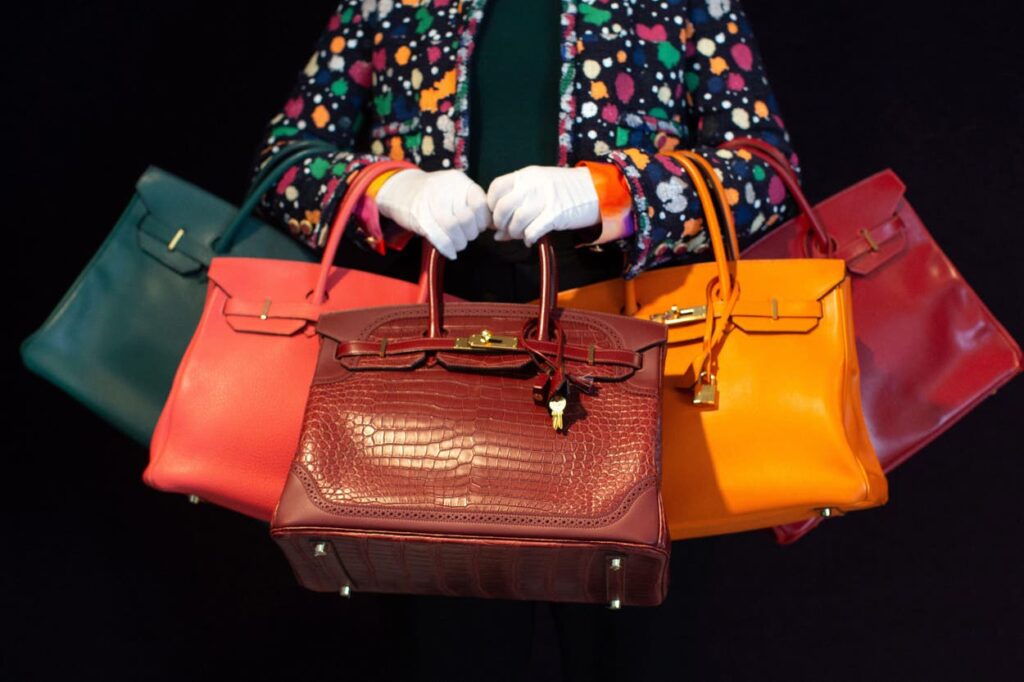The news of Wilfried Guerrand’s four Gen Z children inheriting a staggering $4.2 million in shares of Hermès has garnered considerable attention not only because of the immense wealth involved but also due to what it symbolizes about generational wealth and the ongoing dominance of luxury fashion in the global market. Guerrand, a direct descendant of Hermès’ founder Thierry Hermès, has gifted his children a substantial stake in the company at a time when the brand is thriving despite global economic challenges. This inheritance further solidifies Hermès’ position as a powerhouse in luxury fashion while highlighting the stark realities of wealth inequality, privilege, and the importance of family legacy within powerful dynasties.
Hermès: A Brief Overview of Luxury and Legacy
To understand the significance of the Guerrand heirs’ inheritance, it is essential to appreciate Hermès’ place in the world of luxury fashion. Founded in 1837 by Thierry Hermès, the French brand began as a harness workshop catering to European noblemen before expanding into leather goods, clothing, accessories, and fragrances. Today, Hermès is globally renowned for its exceptional craftsmanship and exclusivity, with products like the Birkin bag and Kelly bag considered the ultimate symbols of luxury. The company’s products are not just high-quality items; they are status symbols, imbued with the mystique of unattainable luxury.
Hermès has managed to maintain its exclusivity by limiting the availability of its most iconic products. The Birkin bag, for instance, is infamous for its waiting list, and only select customers are deemed worthy of purchasing. This exclusivity creates an aura of desirability, making owning Hermès products a hallmark of social status and success. The brand’s strategy of selective accessibility has contributed to its financial success, with its value skyrocketing in recent years.
The Rise of the Hermès Heirs: Privilege and Wealth Transfer
The Guerrand siblings—Sixtine (25), Stanislas (20), Mathias (19), and Albane (18)—are the latest beneficiaries of Hermès’ enduring legacy, each inheriting 450 shares, with the total valuation amounting to approximately $4.2 million. This inheritance not only marks a significant financial windfall for the young heirs but also positions them as part of a powerful legacy that has shaped and continues to influence the luxury fashion landscape.
This transfer of wealth highlights several crucial points about generational privilege. First, the Guerrand children, like many heirs of ultra-wealthy families, are born into immense privilege, inheriting not just financial resources but also social and cultural capital. Inheriting shares in a company like Hermès means inheriting a piece of one of the world’s most valuable luxury brands, and with it, the power and influence that come from such a prestigious position.
Moreover, the rapid growth in the value of Hermès shares underscores how wealth can multiply exponentially when it is already significant. In the past year alone, Hermès’ share price has increased by 10%, a testament to the brand’s strong performance in the luxury market even during periods of economic uncertainty. This growth further increases the value of the shares inherited by the Guerrand heirs, exemplifying how the rich continue to accumulate wealth even during times when the broader economy may struggle.
This windfall also highlights the vast gap between the ultra-wealthy and the average person, exacerbating discussions around wealth inequality. While many people are grappling with financial instability due to rising living costs, inflation, and economic volatility, families like the Guerrands are seeing their wealth multiply with little active effort. This wealth disparity fuels ongoing debates about the fairness of wealth distribution and the role of inherited wealth in perpetuating social inequities.
Hermès and the Resilience of Luxury in Economic Downturns
Hermès’ continued success in the face of broader economic challenges is a testament to the resilience of the luxury market. Despite economic downturns that have affected numerous industries, Hermès has thrived, in part due to its exclusivity and its ability to position its products as desirable during times of financial uncertainty. This phenomenon is often referred to as the “luxury paradox,” where demand for luxury goods can remain steady or even increase during economic downturns because of the association of these products with stability and long-term value.
Hermès’ ability to command such high prices for its products—even during times of global financial instability—demonstrates the brand’s unique market positioning. The Birkin bag, for example, has not only maintained its status as one of the most coveted luxury items but has also increased in value over time, with some models selling for hundreds of thousands of dollars on the resale. The high resale value of Hermès products adds to the brand’s allure, as consumers see their purchases not only as symbols of status but also as potential investments.
The success of Hermès, even as other sectors of the economy struggle, points to the continued relevance of luxury goods in modern society. For the ultra-wealthy, luxury items serve as more than just commodities—they are symbols of identity, markers of social distinction, and, increasingly, financial assets.
The Hermès Family: Power, Influence, and the Future
The Guerrand heirs are just four of over 100 direct descendants of Thierry Hermès, each with their own stake in the family empire. The Hermès family is considered one of the richest in Europe, with an estimated collective worth of around $170 billion. The family’s wealth and influence extend far beyond the realm of fashion, with members involved in various philanthropic efforts, business ventures, and cultural institutions.
The generational transfer of wealth within the Hermès family raises important questions about the role of dynasties in modern capitalism. As heirs like the Guerrand children step into their inherited wealth, they also inherit the responsibility of maintaining and growing the Hermès brand. How they navigate this responsibility will determine the future of both their family’s legacy and the company itself.
In recent years, there has been growing interest in how younger generations of wealthy families will approach their inheritances. Will they continue to prioritize exclusivity and luxury, or will they push for more sustainable and inclusive business practices? These questions are particularly relevant as Gen Z, the generation to which the Guerrand heirs belong, is known for its emphasis on social justice, sustainability, and ethical consumption.
Wealth, Legacy, and the Responsibility of Inheritance
The Guerrand heirs’ inheritance of Hermès shares is emblematic of the immense privilege that comes with being part of a powerful, wealthy dynasty. While this inheritance brings with it great financial security, it also raises important questions about wealth inequality, privilege, and the future of luxury fashion in an increasingly socially conscious world.
As Hermès continues to thrive in the luxury market, the younger generation of heirs, including the Guerrand siblings, will play a crucial role in shaping the brand’s future. Whether they choose to maintain the status quo or push for more progressive changes remains to be seen, but their decisions will undoubtedly have a lasting impact on both the fashion industry and the broader conversations around wealth, privilege, and legacy.
No comments yet.








